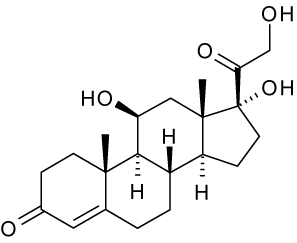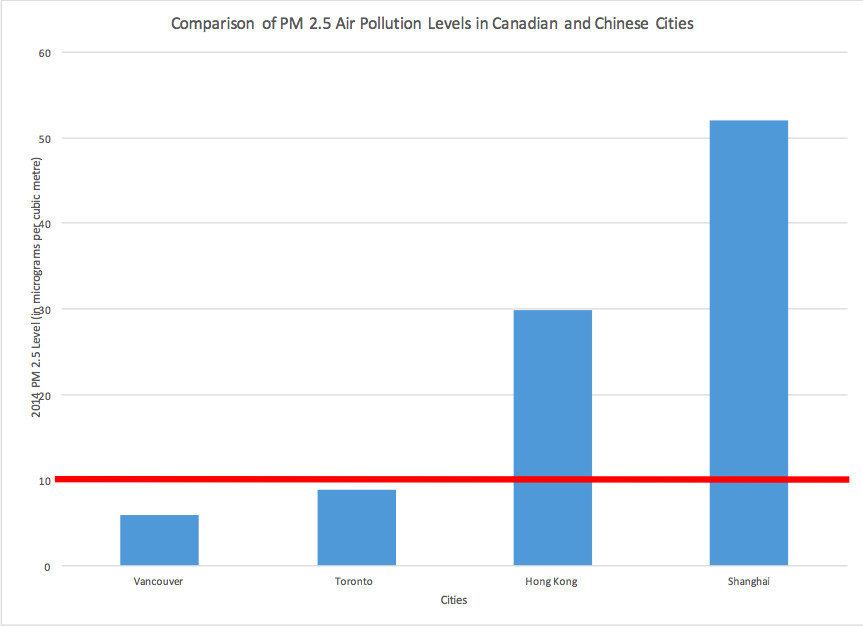Two months ago, there was a large scare as Chinese researchers found that a common air pollutant, PM2.5, not only causes lung and heart disease but increases stress as well.
Kan and Chen modified the air purifiers in select dormitories in Shanghai so that half of them could reduce PM2.5 levels and half couldn’t. Then they monitored the level of homones in the students’ bloodstream after nine days. Surprisingly, they discovered an increase in stress hormones such as cortisol for students who lived without air-purification.

Chemical structure of cortisol. Wikimedia Commons: Foobar. https://commons.wikimedia.org/wiki/File:Cortisol.png
This study was conducted on students in Shanghai, but PM2.5 is the most dangerous air pollutant to us in BC as well. PM2.5 are particulate matter (solid and liquid particles in the air) smaller than 2.5 micrometres. Their small size allows easy access into our lungs to cause chronic lung and heart disease along with increasing stress as mentioned above.
Should we worry though? While Chinese cities largely exceed the World Health Organization limit for PM2.5 at 10 micrograms per cubic metre, Canadian cities are all under this limit.

Figure 1. Comparison of PM2.5 levels in Vancouver, Toronto, Hong Kong and Shanghai. Note that the Canadian cities have PM2.5 levels below the WHO limit of 10 micrograms per cubic metre. For clearer image, see BP 2
In this graph above, it shows that Vancouver is below this limit and busier cities such as Shanghai are five times this limit. Toronto is nearing the limit, but there was a decreasing trend for Toronto in 2015 and no trend for BC.
Unfortunately, this means that your stress isn’t caused by this air pollutant.
Fortunately though, the PM2.5 levels in BC are still safe. But you still need to take personal steps to reduce the impact of air pollution on yourself and others.
Simple steps to stop producing PM2.5 are to stop driving, smoking, and burning wood as these are the highest sources of PM2.5 in BC. Take alternative transport, use alternative fuel to warm your homes, and just don’t smoke. In fact, smoking will increase your chances of lung and heart disease way more than breathing in PM2.5 will. Others will be also be harmed more by breathing in your tobacco smoke than by breathing in PM2.5.
And if you don’t smoke, exercise outside! Open the windows when you’re studying, and take in the clean air that you are gifted to have.
-Ivy Wu
